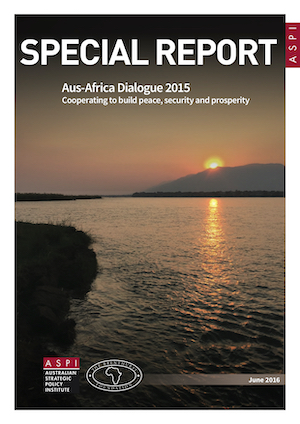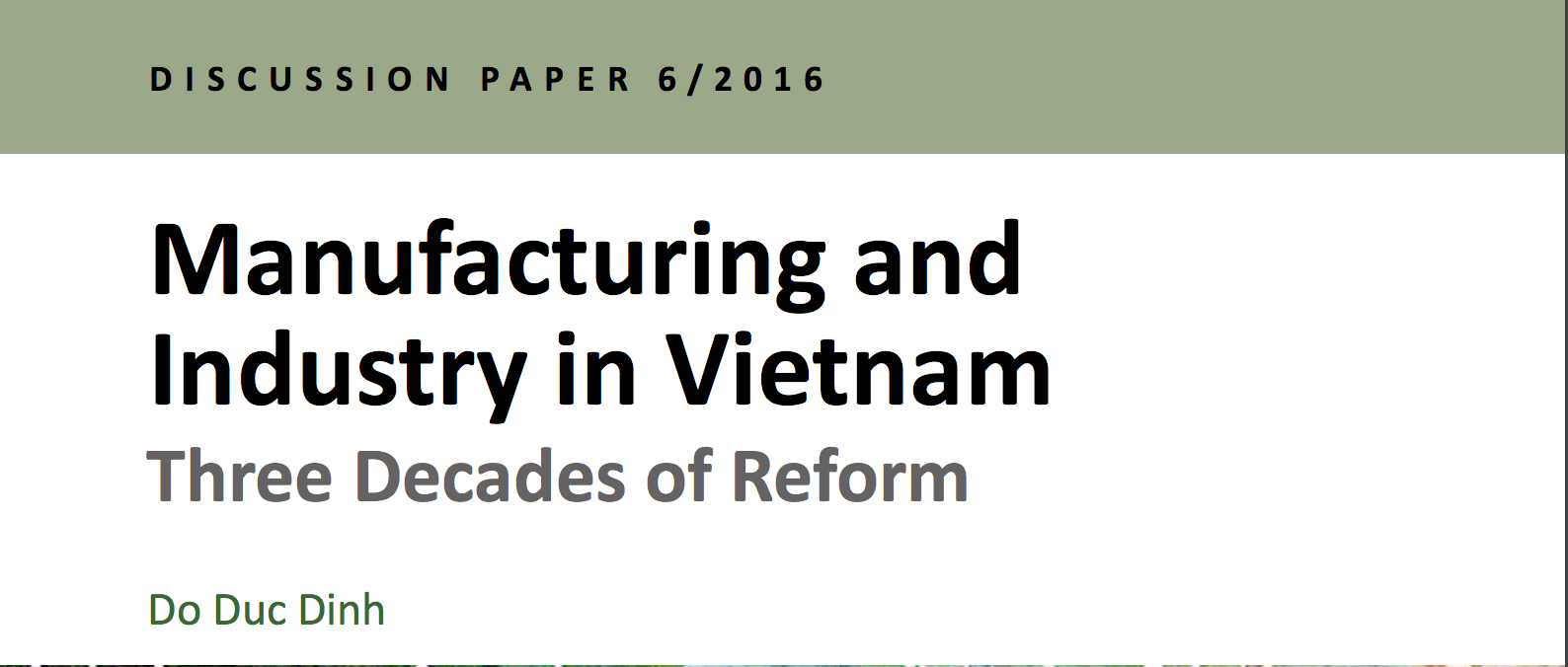Publications
Aus-Africa Dialogue 2015 - Cooperating to build peace, security and prosperity

Former Deputy Director, The Brenthurst Foundation

Head of the International Program at the Australian Strategic Policy Institute
The second Australia-Africa Dialogue was held at the Royal Zambezi Lodge in Zambia from 11 to 14 September 2015, co-hosted by the Brenthurst Foundation and ASPI. Participants included representatives from government, civil society and the private sector. Discussion focused on topics that ranged from the role of government and the private sector in combating terrorism and transnational organised crime to infrastructure development and professional services.
The dialogue is a platform for governments and the private sectors in Australia and Africa to exchange frank views on many issues, build relationships and identify recommendations for further cooperation. It provides a mechanism to support public diplomacy, create links between influential stakeholders and strengthen ties between the two continents.
Participants in the 2015 Aus-Africa Dialogue identified several areas where Australia and African regional organisations, countries, businesses and civil society could deepen engagement. They acknowledged our shared interests in strengthening peace and security, supporting the resilience of governance and justice institutions, developing infrastructure and spurring economic growth.
The following recommendations don't represent a consensus view among all the participants, but instead identify a range of ideas that emerged during discussions for further consideration by government, the private sector and civil society.
Identify strategic interests. The ability of the Australian Government to invest in Africa is limited. Rather than being reactive, the government should set out to be strategic in identifying priorities. A whole-of-government strategy for Australian engagement in Africa, which identifies regional and geographical priorities and works with the private sector, could help to target the limited available resources to invest in Africa sustainably and effectively. Similarly, African countries and regional and sub-regional organisations should seek to identify clear priorities in areas where they wish to engage with Australia.
Share lessons on governance and surveys in the mining sector. Australia has lessons to share on running surveys and establishing good governance in mining. Those lessons could be analysed, and support could be provided through organisations such as Geoscience Australia to assess resources in Africa. This could include holding a workshop with stakeholders, as well as engaging regional bodies such as the African Development Bank, the Common Market for Eastern and Southern Africa (COMESA) and the African Union. It could also include exchanges of personnel among mining companies, as well as analyses of taxation and revenue arrangements.
Share information and lessons on approaches to counterterrorism and deradicalisation. Lessons from Sydney, Nairobi and Lagos could be shared, particularly experiences in deradicalisation, engaging youth and education, and approaches being used to combat ISIS, al-Shabaab and Boko Haram. Opportunities for improving intelligence sharing and cooperation and providing support on cybersecurity could be identified. Broader cooperation will involve identifying regional and global priorities, leveraging multilateral and regional programs and activities, exchanging ideas and supporting capacity building through training courses, strengthening military and police relationships (including further ADF and AFP liaison posts in Africa) and enhancing cooperation with the private sector.
Identify opportunities to exchange lessons and provide counter-IED support. Improvised explosive devices (IEDs) pose a threat in Northern Africa and the Horn of Africa, and the use of such weapons may spread. The ADF has developed significant institutional knowledge and capability to tackle IEDs, and the Australian Government has an interest in cooperation to overcome this threat. The threats faced by countries in Africa could be further analysed, including to identify opportunities for Australia to further its engagement and exchange lessons through research and workshops.
Raise awareness about Australian commercial opportunities in Africa. During the dialogue, participants noted several sectors for potential Australian business investment, including infrastructure (air services), professional services and the energy sector. The Australian Government could seek to engage the private sector in business and trade delegations to particular regions in Africa.
Develop more comprehensive training in peace operations. Australia's current approach to peacekeeping training in Africa is ad hoc. Opportunities exist to build on areas such as the protection of civilians, responses to sexual and gender-based violence, and women, peace and security. Australia and Africa could cooperate in developing training courses in mutual areas of interest in peacekeeping, which might include areas such as logistical, medical, counter-IED and civil-military cooperation.
Support for the International Criminal Court. Stark disagreements about the functioning of the International Criminal Court (ICC) were identified at the dialogue, suggesting that further discussion and engagement on that issue are needed. This could be an opportunity for African countries or regional organisations to work with Australia to facilitate an ongoing dialogue on areas of concern and potential reform, drawing on Australia's recent UN Security Council term and support for the ICC as an institution.
Develop understanding and awareness in the media and among journalists. It's important to raise awareness about African issues among the Australian media. This could include developing a program for journalists to tour Africa (as Australia does in the Pacific and Asia). Similarly, African journalists could benefit from a more thorough understanding of Australia, which could be assisted by supporting scholarships for them to come to Australia.
Engage with and invest in young entrepreneurs and civil servants. Identify emerging young entrepreneurs and officials in government to participate in a program in Australia (and in Africa) to engage with government, the private sector and senior political officials. This could be a fellowship program or part of a government visits program.
Establish women's networks. Australia's work to empower women in the Pacific (through the AFP) could be a model for establishing similar networks in the security sector. Such networks could be formal or informal and be between women in different security sectors, governments, the private sector, or any combination of them. The aim would be to exchange lessons and develop support.
Invest in the development of strong governance and institutions to support resilience. The recent Ebola outbreak and natural disasters have demonstrated the importance of strong institutions in Africa. Australia could identify areas to assist in strengthening regional mechanisms to support natural disaster response, perhaps through the Indian Ocean Rim Association, and health security, such as by supporting an African equivalent of the Centers for Disease Control.
Strengthen maritime security. Maritime security is an area of mutual interest, given that Africa and Australia share the Indian Ocean and support the development of the ‘blue economy'. Opportunities could be identified to support regulation (such as of fisheries) and security in East Africa, in particular.
About The Brenthurst Foundation
Based in Johannesburg, South Africa, the Brenthurst Foundation is on the frontier of new ideas and innovative actions for strengthening Africa's economic performance. Our activities are focused in three areas: encouraging key decision-makers and experts to share experiences and insights at private meetings and seminars; delivering relevant, practical policy advice to governments; and generating new thinking and thought-leadership to address Africa's development challenges.

About ASPI
ASPI's aim is to promote Australia's security by contributing fresh ideas to strategic decision-making, and by helping to inform public discussion of strategic and defence issues. ASPI was established, and is partially funded, by the Australian Government as an independent, non-partisan policy institute. It is incorporated as a company, and is governed by a Council with broad membership. ASPI's core values are collegiality, originality & innovation, quality & excellence and independence.
ASPI's publications - including this paper - are not intended in any way to express or reflect the views of the Australian Government. The opinions and recommendations in this paper are published by ASPI to promote public debate and understanding of strategic and defence issues. They reflect the personal views of the author(s) and should not be seen as representing the formal position of ASPI on any particular issue.
Important disclaimer
This publication is designed to provide accurate and authoritative information in relation to the subject matter covered. It is provided with the understanding that the publisher is not engaged in rendering any form of professional or other advice or services. No person should rely on the contents of this publication without first obtaining advice from a qualified professional person.
© The Australian Strategic Policy Institute Limited 2016
This publication is subject to copyright. Except as permitted under the Copyright Act 1968, no part of it may in any form or by any means (electronic, mechanical, microcopying, photocopying, recording or otherwise) be reproduced, stored in a retrieval system or transmitted without prior written permission. Enquiries should be addressed to the publishers. Notwithstanding the above, Educational Institutions (including Schools, Independent Colleges, Universities, and TAFEs) are granted permission to make copies of copyrighted works strictly for educational purposes without explicit permission from ASPI and free of charge.
First published June 2016
Published in Australia by the Australian Strategic Policy Institute


